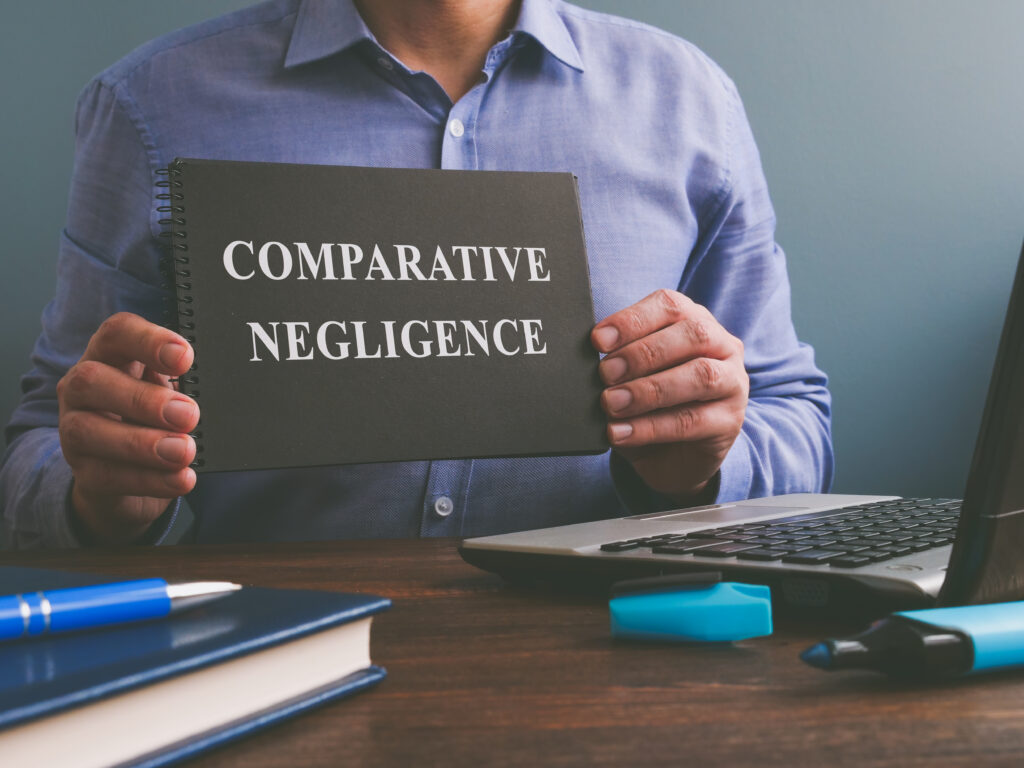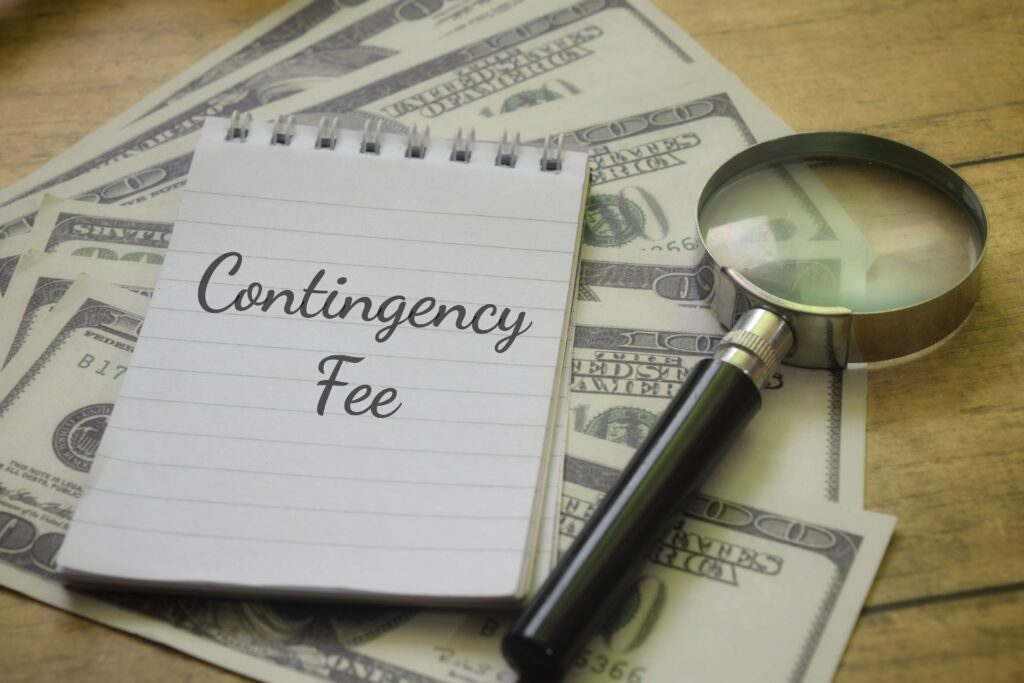Several elements shape how much a case may settle for, and they can vary from one claim to the next. If another party caused your crash, you need to know what factors influence motorcycle accident settlements in Texas.
You don’t have to handle this alone. A Texas motorcycle accident lawyer near you can offer a free consultation and help you take the following steps.
How Is Fault Determined in Texas Motorcycle Accidents?
Liability plays a big role in motorcycle settlement outcomes. Who caused the crash, and how much responsibility each party shares, can shift the financial stakes. Texas law lays out how fault is handled.
Texas's Modified Comparative Negligence Rule

Texas uses a system called modified comparative negligence. Under this rule, you can recover damages if you're less than 51% at fault. However, your compensation drops based on your level of responsibility.
For example, if a court finds you 30% at fault, your compensation will be reduced by that amount. If you're found 51% or more responsible, you can't recover anything.
Evidence Used to Establish Liability
To determine who’s liable, evidence matters. Common types include:
- Police reports
- Photos and videos from the scene
- Witness statements
- Surveillance or dashcam footage
- Phone records (to show distracted driving)
- Black box data (if available)
- Accident reconstruction reports
The clearer and more detailed the evidence, the stronger the case becomes.
Impact of Bias Against Motorcyclists
Unfortunately, motorcyclists sometimes face bias. Some assume riders are always reckless, even when they follow the rules. This unfair perception can influence insurance adjusters or jurors. A strong legal case can counter these assumptions and keep the focus on the facts.
Severity of Injuries and Medical Expenses
Injury severity has a major influence on motorcycle accident settlements. The more serious the injury, the more treatment is often required.
Catastrophic vs. Minor Injuries
Motorcycle crashes often cause major injuries like:
- Spinal cord damage
- Traumatic brain injuries
- Multiple fractures
- Severe road rash with infections
These types of injuries usually result in higher settlements than soft tissue injuries or minor scrapes and bruises.
Future Medical Care Considerations
Some injuries don’t stop causing problems after the initial hospital stay. Surgeries, rehab, assistive devices, or long-term medications may be needed. Settlement amounts often increase when future care is part of the claim. Victims may also require home modifications or mobility aids.
Documentation Requirements for Medical Claims
To support medical-related claims, proper documentation is key. This includes:
- Hospital and doctor records
- Test results (like MRIs or CT scans)
- Prescription receipts
- Physical therapy reports
- Notes from specialists
Insurance companies often push back on vague or poorly documented claims, so detailed records help.
What Role Does Insurance Coverage Play in Settlement Amounts?
Insurance can set boundaries for how much money is available in a case. Some drivers carry only the bare minimum. Others may have extra coverage or umbrella policies.
Minimum Insurance Requirements in Texas
Texas law requires drivers to carry:
- $30,000 for each injured person
- $60,000 total per accident
- $25,000 for property damage
This coverage, known as 30/60/25, might not go far in a serious motorcycle accident.
Underinsured and Uninsured Motorist Coverage

If the driver who hit you doesn’t have enough insurance, or any at all, your own policy may help. Uninsured and underinsured motorist (UM/UIM) coverage fills the gap. It can pay for medical bills, lost income, and other damages. Many riders carry this, but they may not realize they have it until after a crash.
Multiple Insurance Policies in Complex Cases
Some claims involve multiple policies. For instance, if the at-fault driver was on the job, their employer’s insurance might also apply. If a defective part contributed to the crash, product liability coverage could come into play. A lawyer can help identify these options and file claims under each.
Lost Income and Earning Capacity
A crash can stop someone from working temporarily or permanently. These financial losses often form a large part of the settlement demand.
Calculating Current Lost Wages
To calculate lost income, you'll need:
- Pay stubs
- Tax returns
- Employment letters confirming missed time
- Timesheets
The goal is to show exactly what you would’ve earned if the crash hadn’t happened.
Future Earning Potential Assessments
Some injuries stop victims from returning to the same job. Others force them into lower-paying work. In these cases, settlement demands often include loss of earning capacity.
Financial experts may estimate how much the rider would’ve earned over their lifetime and compare it to expected earnings after the injury.
Self-Employment and Irregular Income Challenges
When a victim is self-employed, things get trickier. Tax records, client contracts, and past invoices help support the claim. Riders who work freelance or gig jobs may need to show patterns of income to justify their losses.
How Do Pain and Suffering Damages Affect Your Settlement?
Pain and suffering damages are called non-economic damages. They relate to how the crash impacted your life beyond the bills.
Methods for Calculating Non-Economic Damages
Two common methods are:
- Multiplier method: Multiply actual damages (like medical bills) by a number, usually 1.5 to 5.
- Per diem method: Assign a daily value to your suffering, then multiply it by the number of days you suffered.
The severity of the injury, length of recovery, and impact on daily activities all influence the calculation.
Factors That Increase Pain and Suffering Awards
Factors that may boost the amount include:
- Permanent disabilities
- Visible scarring or disfigurement
- Ongoing pain or mental health issues
- Loss of ability to enjoy hobbies or relationships
These losses may not have receipts but can deeply affect someone’s quality of life.
Texas Caps on Non-Economic Damages
In most motorcycle accident cases, Texas doesn’t cap non-economic damages. However, if your claim involves a government entity or a medical provider, caps may apply. For example, damages may be limited to $250,000 per defendant in medical cases.
Property Damage and Vehicle Replacement
Motorcycles often take serious damage in crashes. Whether your bike can be repaired or needs replacing will shape your property claim.
Motorcycle Repair vs. Total Loss Calculations
If repair costs exceed the bike’s value, insurers may declare it a total loss. They’ll pay the fair market value, not what you paid for it or what it’s worth to you personally.
Custom Parts and Modifications
Many riders add upgrades or custom work to their bikes. Insurance policies vary on whether these are covered. Some require special add-on coverage for aftermarket parts. Riders should provide receipts or photos to support claims for customizations.
Diminished Value Claims
Even after repairs, a motorcycle may lose resale value. That loss is called diminished value. In Texas, you may be able to recover for this loss, especially if the bike was newer.
What Impact Do Legal Representation and Negotiation Skills Have?
The way a case is handled can shift the outcome. Having a strong advocate changes how insurers treat a claim.
Attorney Experience with Motorcycle Cases
Lawyers who routinely handle motorcycle claims often understand the unique factors involved, such as helmet issues, lane filtering debates, and common types of rider injuries. They also know how to challenge bias against bikers.
Timing of Settlement Negotiations
When to start settlement talks matters. Settling too early may lead to lower amounts, especially before full medical recovery. A lawyer may delay negotiations until your condition stabilizes and future needs become clear.
Trial Preparation as Leverage
Preparing a case for trial shows the insurance company you're serious. Many insurers offer more money when they know the lawyer is ready to go to court. It’s not about filing a lawsuit for the sake of it. It’s about holding the other side accountable when they try to lowball the injured party.
Common Settlement Challenges in Texas Motorcycle Cases
Even when the facts seem clear, claims don’t always go smoothly. Motorcycle accident cases can run into delays and disputes.
Insurance Company Tactics and Delays
Insurers sometimes stall or deny valid claims. They may ask for excessive paperwork, delay responses, or offer low settlements hoping that you’ll take the first offer. Persistent follow-up and pressure help move the case along. A lawyer can step in when the insurance company refuses to treat the claim fairly and hold them accountable.
Disputed Liability Scenarios
When both drivers blame each other, the case can drag on. Conflicting witness statements or lack of video evidence can lead to a standoff. Strong evidence and clear arguments often break the logjam.
An attorney can create a timeline of events and explain the sequence of actions leading to the crash to help show who really caused it.
Incomplete or Inconsistent Medical Documentation
Medical records show the extent of your injuries, the treatment you needed, and whether you’re expected to recover fully. When those records are incomplete or inconsistent, the insurance company may use that against you.
For example, if gaps exist in your treatment timeline or doctor notes don’t clearly connect the injury to the crash, the insurer might argue the injuries came from something else. If symptoms weren’t documented early or follow-up care was skipped, they may suggest the injury wasn’t serious.
Keeping detailed records and attending all medical appointments helps prevent this problem. If you have to delay treatment or change providers, noting the reasons helps show you didn’t abandon your care. Clear, organized medical documentation makes it harder for insurers to question your claim.
How a Personal Injury Attorney Can Maximize Your Settlement
A lawyer can often increase the value of your case by taking several specific actions on your behalf.
Case Investigation and Evidence Gathering
Attorneys often dig deeper than police reports. They may hire crash reconstruction teams, get surveillance footage, or subpoena phone records. These steps can reveal key facts that support your claim.
Medical Expert Consultations
Doctors can provide insight on how injuries will affect your future. Their opinions can explain why treatment is necessary or show the long-term effects of your injury.
Negotiation Strategy and Trial Readiness
Attorneys know how to push for fair offers. They can counter lowball tactics and build pressure by preparing for trial if needed. Even if a case never goes to court, showing readiness often brings better offers.
Contingency Fee Structure Benefits

Most injury lawyers work on a contingency basis, meaning they only get paid if the case results in compensation. That arrangement helps clients get legal help without paying upfront. It also aligns the lawyer’s goals with the client’s outcome.
Frequently Asked Questions About Motorcycle Accident Settlements
How long do I have to file a motorcycle accident claim in Texas?
You typically have two years from the date of the accident. If the claim involves a city, county, or state agency, you may need to file notice within six months or less. Always check the specifics, because missing the deadline can end your claim before it starts.
Can I still recover damages if I wasn't wearing a helmet?
Yes, though it may affect the case. Texas requires helmets for riders under 21. Riders over 21 may ride without one if they’ve completed safety training or carry proper insurance. Not wearing a helmet might reduce damages if the insurer argues it made your injuries worse.
What if the other driver doesn't have insurance?
You may still recover through your own uninsured motorist coverage. Other options include suing the driver directly or looking into third-party liability, such as a vehicle defect or faulty road conditions.
How long does it typically take to settle a motorcycle accident case?
Some cases resolve in a few months. Others take a year or more, depending on injury severity, recovery time, and whether the insurer delays. Complex cases or those involving trials take longer.
Speak with Our Experienced Motorcycle Lawyers Now
After a motorcycle accident, quick action helps preserve evidence and protect your claim. The sooner you reach out, the better chance you have to build a strong case.
At DFW Injury Lawyers, our team understands what it takes to hold drivers and insurers accountable. As an experienced Texas personal injury lawyer team, we’ve handled many motorcycle injury claims throughout Texas and know what it takes to get real results. Our lawyers deal directly with the insurance company while you focus on healing.
Reach out now for a free consultation. Let us evaluate your case and walk you through your options. You don’t owe anything upfront, and we only get paid if your case leads to compensation. Contact DFW Injury Lawyers today.